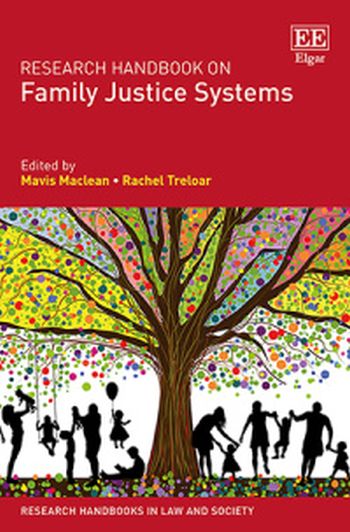
Bringing together current research from a diverse range of jurisdictions on family law, the Research Handbook on Family Justice Systems addresses the aims and boundaries of family justice systems. Delineating the common purpose of family law to achieve fairness for groups of people who live or have lived together, this Handbook is concerned with the rules referred to as ‘family law’, but also with the institutions comprising the operating system.
This Handbook presents the view that a Family Justice System (FJS) is a living entity, working with and for a wide range of beliefs and practices, comprising far more than a set of rules and regulations, which can respond to a changing society, while also contributing to that change. Looking specifically at the FJS as an important and evolving element in the organisation of a society, with which sociologists, as well as lawyers and family sociologists are concerned, it explores how a FJS works in practice, what it tries to do and why. With contributions from the US, UK, Germany, Netherlands, Switzerland, France, Poland, Japan and China, this Research Handbook is an internationally relevant and comprehensive work.
The Research Handbook on Family Justice Systems examines FJS in practice, making it highly pertinent to researchers, academics, practitioners, government lawyers, policymakers and government administrators in the fields of sociology and law with a special interest in family law and the FJS.